Cooperation in human resource training creates a bridge to promote Vietnam - Laos solidarity - Part 1
Nghe An has a 468.281km long border, adjacent to 3 provinces of Hua Phan, Xieng Khouang, Bolikhamxay (Lao People's Democratic Republic). Universities and colleges in Nghe An province have received and trained thousands of students, trainees, and postgraduates from Lao provinces. This force has been and is a "bridge" connecting and fostering solidarity, friendship, and comprehensive cooperation between Nghe An and Lao provinces in particular, and Vietnam and Laos in general.
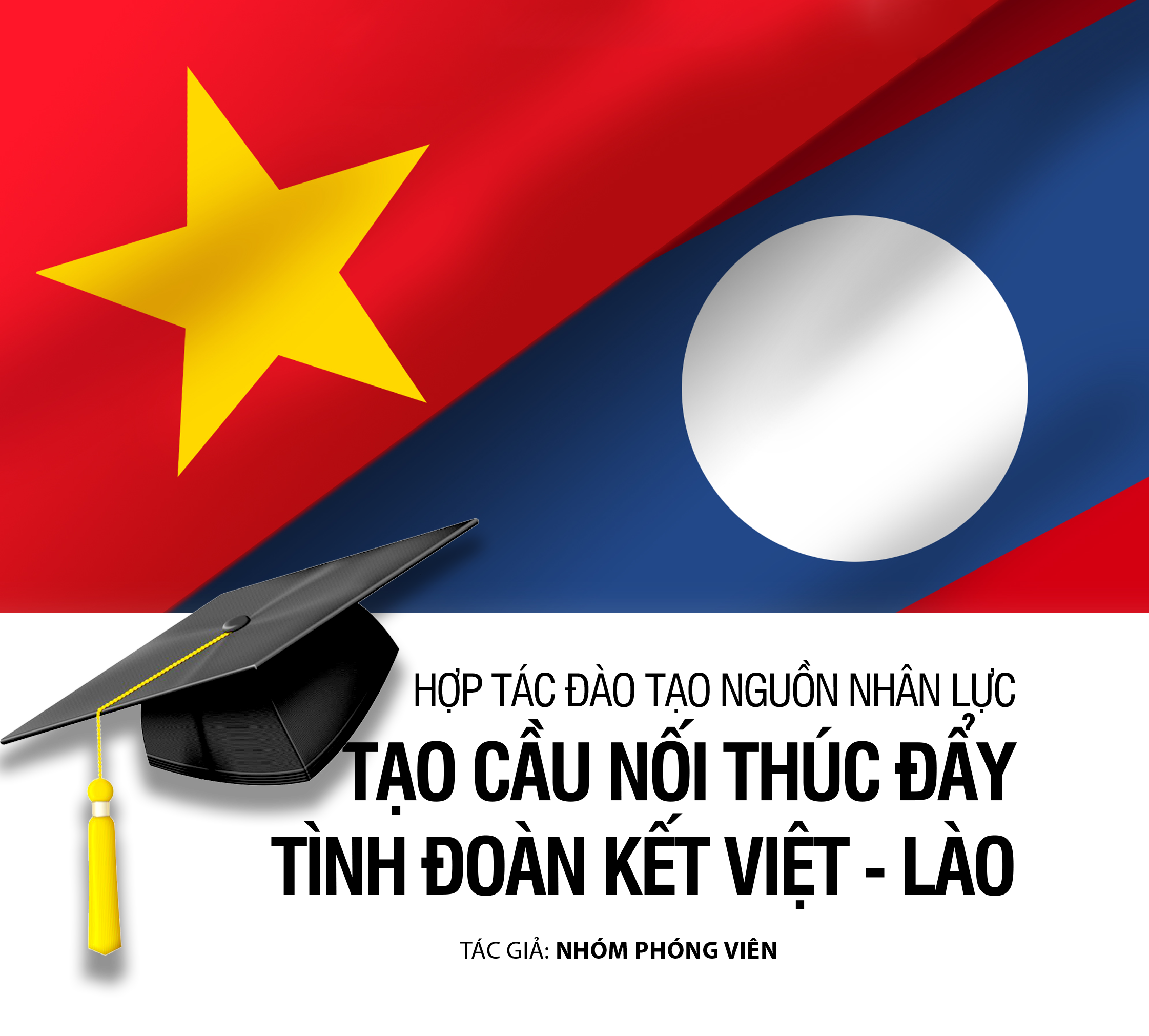
Nghe An has a 468.281 km long border, adjacent to 3 provinces of Hua Phan, Xieng Khouang, Bolikhamxay (Lao People's Democratic Republic). Universities and colleges in Nghe An province have received and trained thousands of students, trainees, and postgraduates from Lao provinces. This force has been and is a "bridge" connecting and fostering solidarity, friendship, and comprehensive cooperation between Nghe An and Lao provinces in particular, and Vietnam and Laos in general.
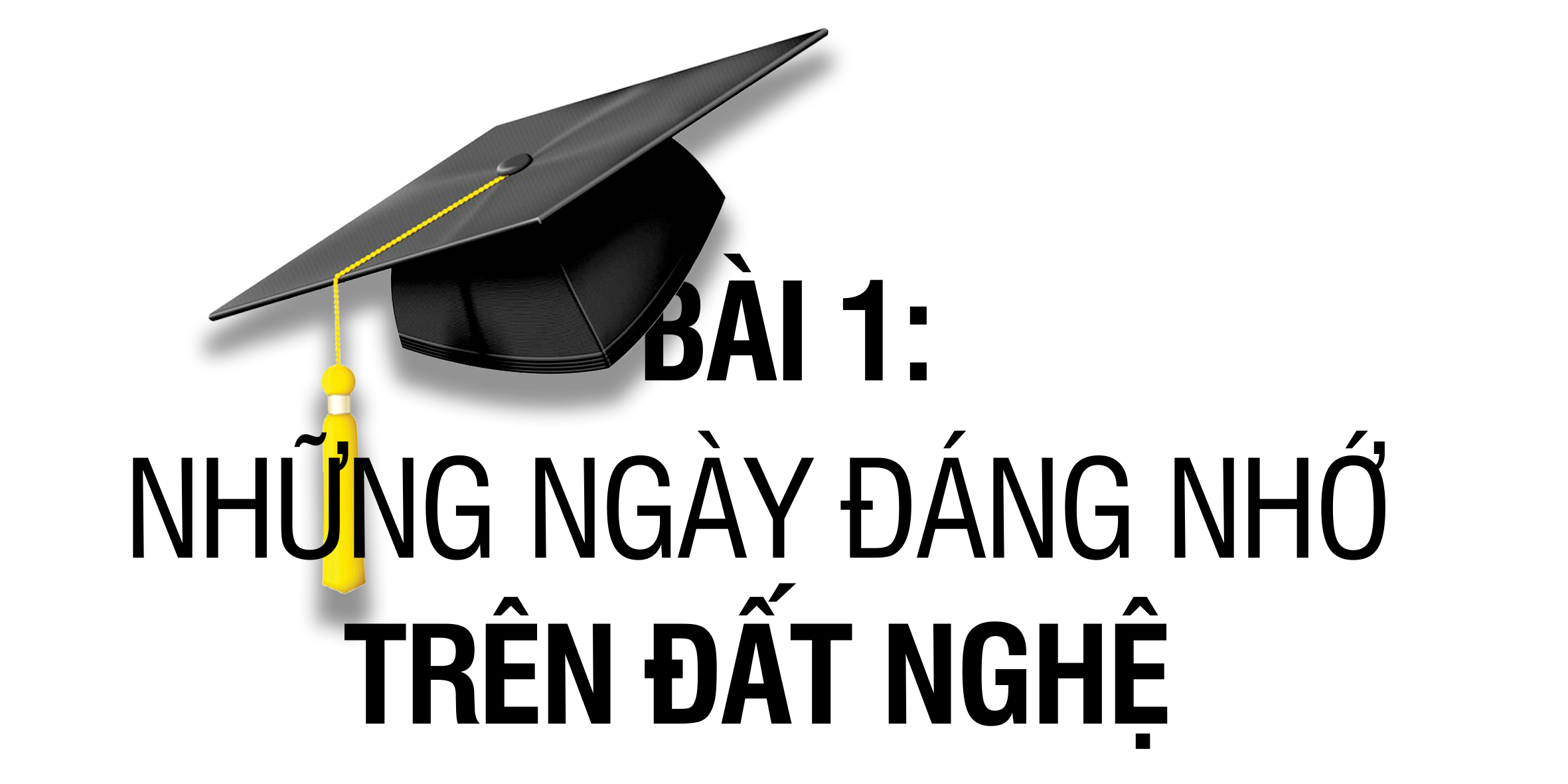
From the brotherly country of Laos, Lao students studying in Nghe An bring with them many ambitions and aspirations; they are educated, supported, cared for, loved and this land has become a second home that nurtures them on their journey to adulthood. After graduating and returning home, many Lao students have applied their knowledge, experience, and skills to perform professional tasks in many fields with high efficiency.
Grateful for my second homeland
Four years after successfully defending his doctoral thesis in Educational Management at Vinh University, Mr. Sivone Ruevaibounthavy - currently working at the National Assembly Office of the Lao People's Democratic Republic - still kept the same profile photo recording his portrait with the doctoral degree certificate on his personal page: "I took this photo right after completing nearly 13 years of study at Vinh University. I also deliberately chose to wear the costume of the Khmu people to remember the memories of Nghe An land. For me, this is truly a memorable memory, a source of pride and honor."
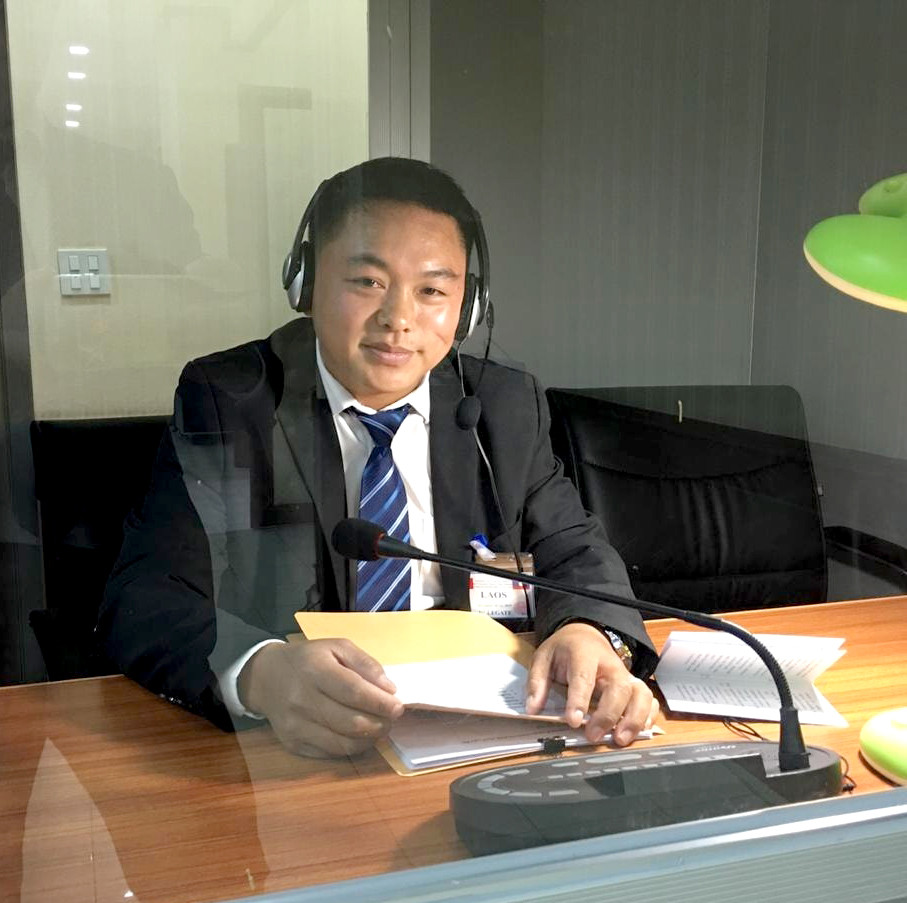
Up to this point, Sivone Ruevaibounthavy is the only Laotian international student to have successfully defended his doctoral thesis at Vinh University. 16 years ago, Sivone Ruevaibounthavy, born in 1989, grew up in a mountainous district of Xieng Khouang province (Laos), and decided to go to Nghe An to enroll in university. Although this was his first time away from home, his choice at that time received the support of his parents and 6 other brothers and sisters, for the simple reason "Nghe An is my mother's hometown, she is a Khmu woman born in Ky Son district, went to Laos and married my father...".
Sivone's situation when he came to Vietnam to study was very difficult. During the first two years in Vietnam, Sivone studied on his own. Loving his son and knowing his aspirations, Sivone's father sold a piece of land to pay for his food and tuition. "After finishing grade 12, I ranked 3rd in the graduation exam of a high school in Xieng Khouang province and was admitted to several universities and colleges in Laos. But because my mother is from Nghe An, I used to visit her hometown when I was young, so I really wanted to come back here to continue my university studies," Sivone said.
Sivone also said that although his mother is from Nghe An, she was born and raised in a mountainous district, so her Vietnamese language skills are very limited. That is also the reason why, although Sivone has 50% Vietnamese blood, he only learned a few simple words from his mother such as "eat rice, drink water, go where" and did not know how to write at all. To be able to attend university, the first year in Nghe An, Sivone enrolled in Vietnamese at Vinh University. After that, he enrolled in the Mathematics Pedagogy major - a major that few foreign students study: "I had difficulties in the first year because my Vietnamese was not fluent, the curriculum was difficult because Mathematics is a very special subject. The general education programs in Laos and Vietnam have many differences, so compared to my friends, my ability is weaker. However, these obstacles forced me to make an effort," Sivone said.
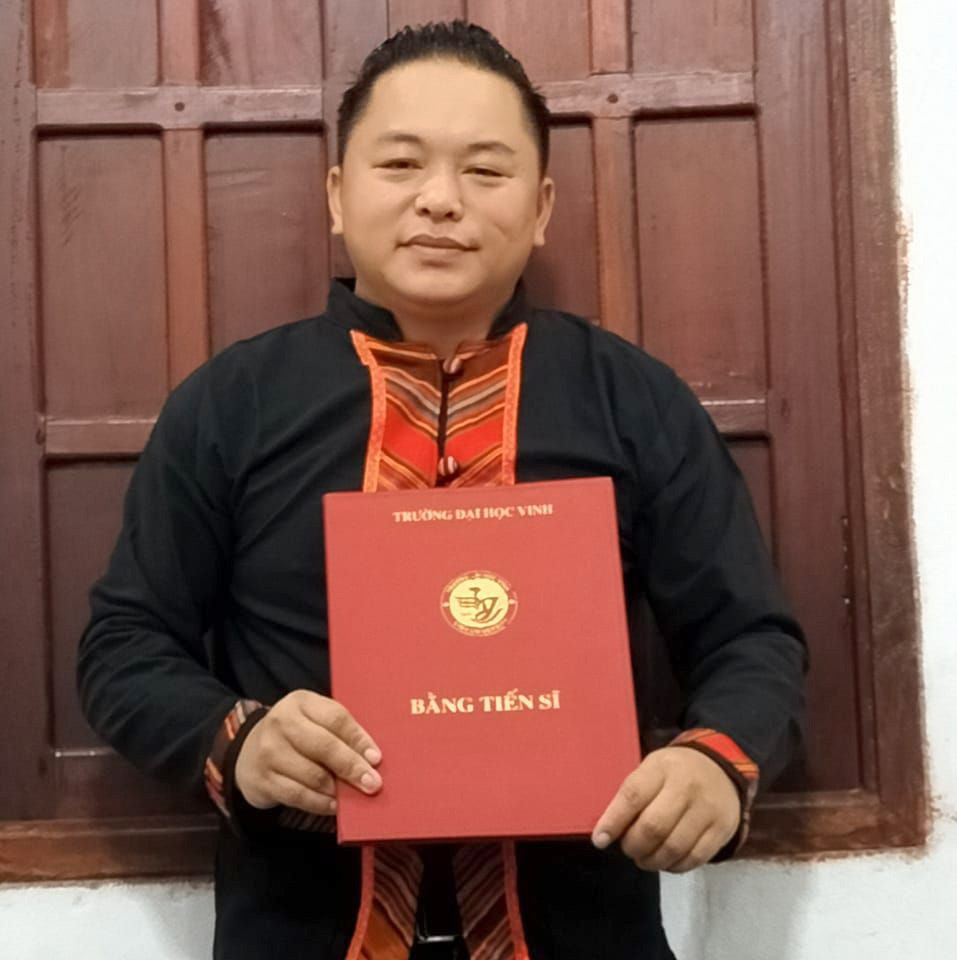
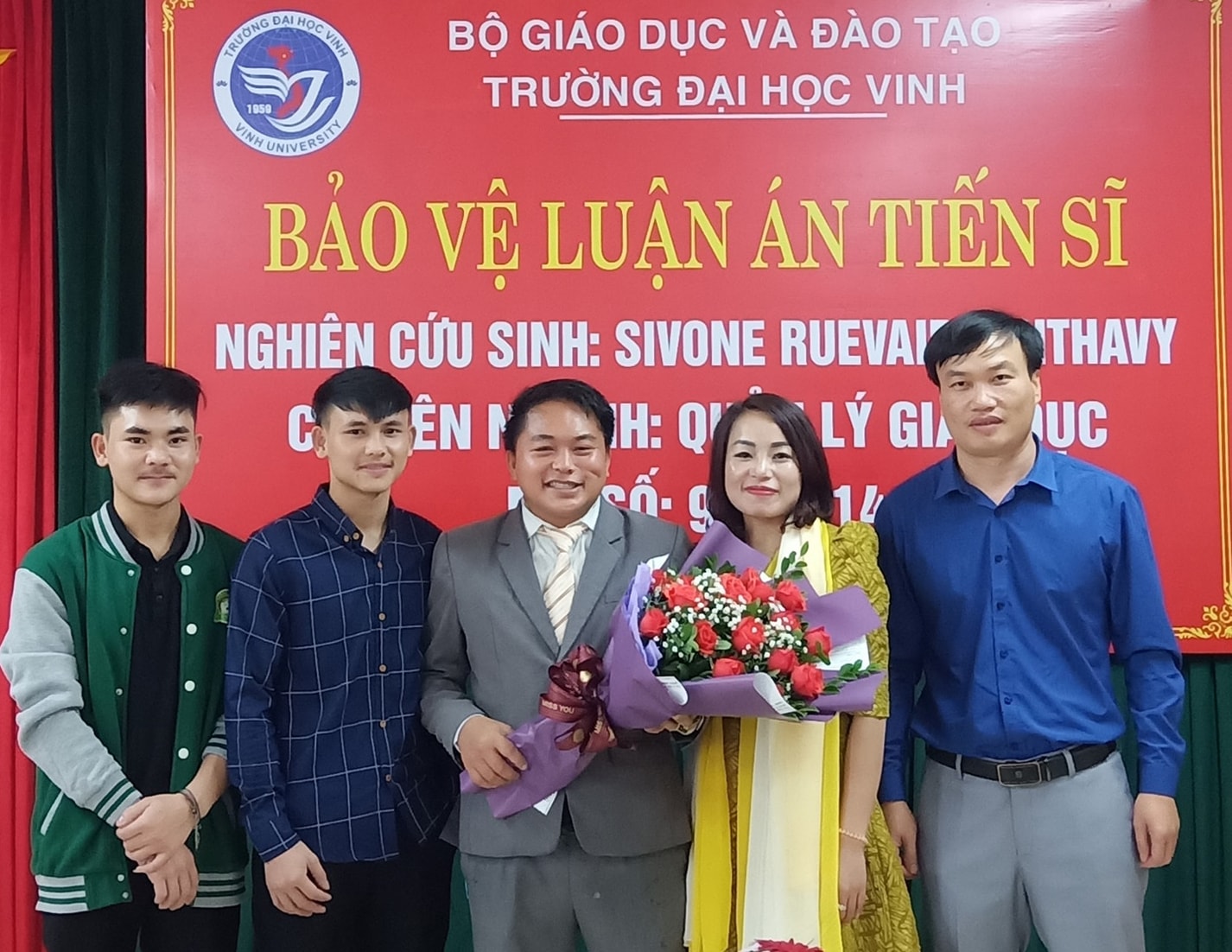
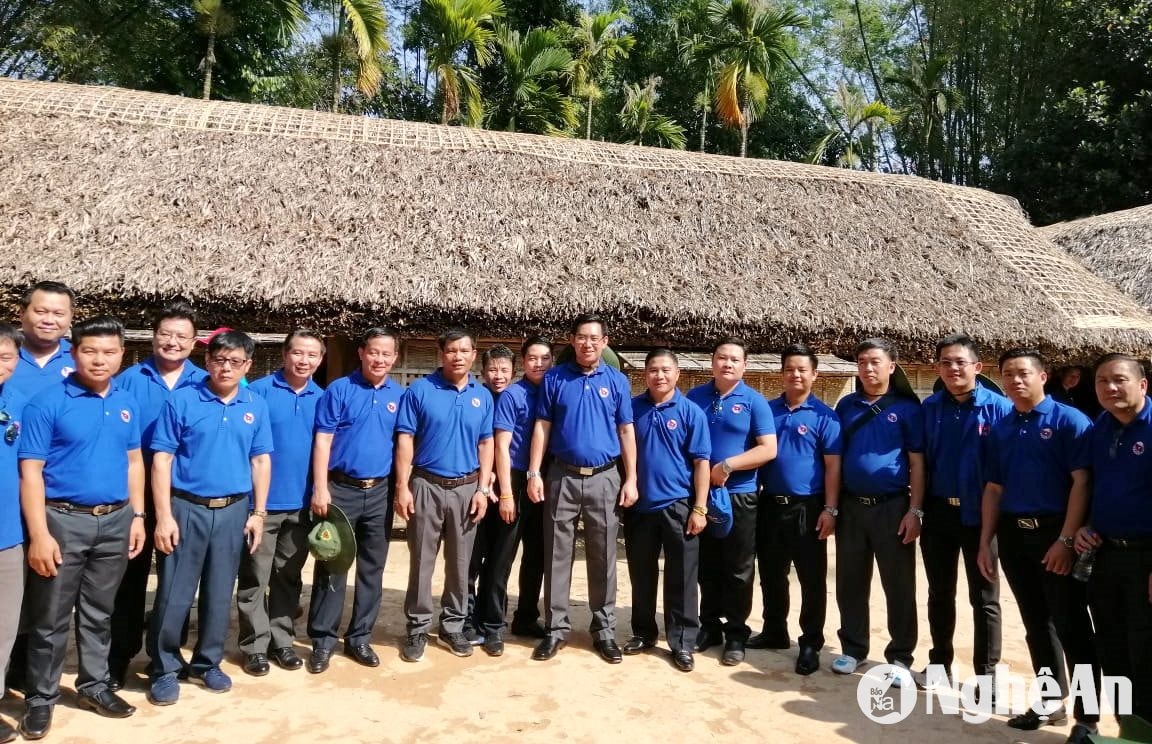
Fortunately for Sivone, from his second year of university, he received a 50% scholarship support from Nghe An Provincial Youth Union. After graduating from Mathematics Pedagogy, he continued to receive a scholarship from Nghe An province to study for a master's degree and then successfully defended his doctoral thesis in Educational Management. After nearly 10 years in Nghe An, Sivone truly considered this his second homeland, becoming a true Nghe An person who knows how to say "chi, mo, rang, rua", knows all the dishes, remembers the names of every street, makes many new friends, and has foster parents. After 10 years, Sivone also became a special student at Vinh University, participating in all school activities, and is loved by teachers and friends.
In particular, during his master's and doctoral studies and as President of the Lao Student Association of the school, Sivone had many opportunities to develop his abilities such as teaching Lao language to departments and branches of Nghe An province, and working as an interpreter for Lao delegations when they came to work in Vietnam. Sivone said: "My initial dream was to become a math teacher in my country. But later I had more opportunities to study and develop myself and I think that was really lucky. The years of experience at Vinh University, in Nghe An, gave me knowledge, experience and many valuable things, which laid the foundation for my future development."

With a doctorate degree, Sivone had many advantages when returning to Laos, being recruited to work at the National Economic Research Institute and holding the role of assistant to the President of the Institute. A short time later, he continued to accompany the head of this institute to work at the National Assembly Office and continued to be the secretary and assistant to the Chairman of the Financial Planning and Auditing Committee of the Lao National Assembly. In this new position, he was often with the Lao National Assembly delegation to work with the Vietnamese National Assembly and Nghe An province. On these trips back to Nghe An, in addition to his professional duties, he was always trusted to be an interpreter for the delegation. Sivone shared: "Every time I return to Nghe An, I feel like I am returning to my second homeland. If there were no Vinh University, if there were no people from Nghe An who love, care for and help me, I probably would not be who I am today."
Later, Sivone's four younger siblings also followed his path of study. After completing their studies at Vinh University, Vinh Industrial University, Thai Nguyen College, and Ha Tinh Medical College, they returned to Laos and now have jobs and stable lives...
"Nghe An in me is so magical"
“Nghe An in my heart” is the topic chosen by Phonethong Phaomany – a former student of the Faculty of Information Technology – Vinh University of Technical Education when participating in the national “Vietnamese Speaking Contest” for Lao students held in Thai Nguyen city 5 years ago.
At that time, Phonethong had studied in Nghe An for nearly 4 years and could speak Vietnamese fluently like a Vietnamese person. Before coming to the final round, he had won second prize in the speech contest in Nghe An and first prize in the Central region. In the final round, his 8-minute speech conquered the judges because it was presented coherently, clearly, and with intonation.
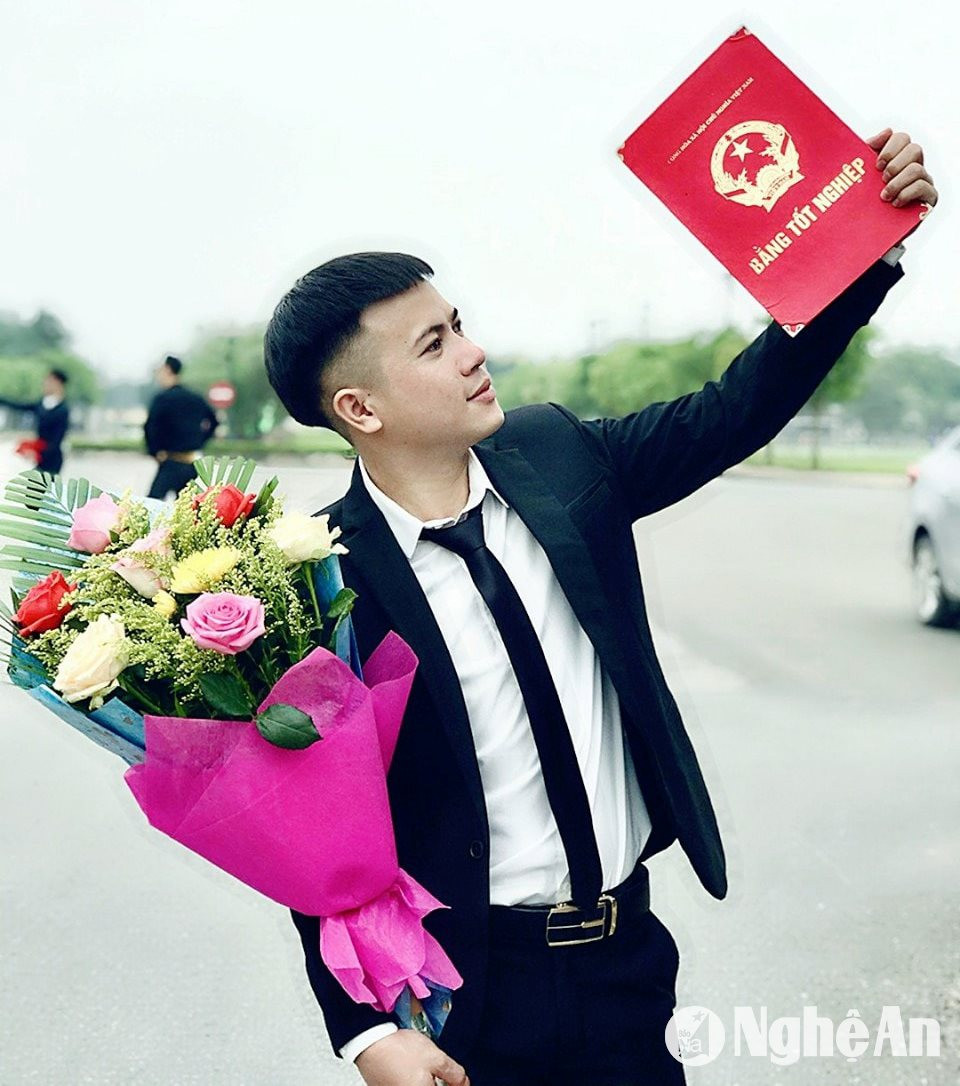
In his exam, Phonethong fully introduced Nghe An, a land of outstanding people, rich in revolutionary tradition, the cradle of culture and outstanding people. However, the most impressive thing is probably the sincere feelings and vivid slide images recording his own story, with the Nghe An people that he was lucky to meet during his university years.
“Before coming to Nghe An, I only thought this was a place to help me study and practice skills to develop the country. But after a period of studying, this land has become a deep emotion in me. Nghe An in my mind is the people who are honest, simple and warm-hearted. It is the teachers who are devoted to teaching each page. It is the Vietnamese students who accompany and support Lao students in their studies. It is the uncles at the Vietnam - Laos Friendship Association. It is the foster family who always teach us the beauty of Vietnamese culture. It is so warm when the East wind blows, my foster parents tell me to wear more clothes to keep warm. When I leave, my Vietnamese parents tell me to do my homework well. It is so wonderful that strangers of two nations have come closer together, love and bond, and I have a second home in the beloved land of Nghe An.”
After graduating and returning to Laos to work for more than 3 years, Phonethong still respectfully saved the images of that competition on his personal page. The speech that won first prize in the final competition that year became a beautiful memory, an unforgettable mark in the beautiful years of youth that Phonethong received while studying in Vietnam. His teachers at Vinh University of Technical Education also did not forget this hard-working, diligent and talented student. On Tet, holidays and his important events such as the day he got married, had children... the teachers all sent congratulations. On Phonethong's personal page, the use of Vietnamese and Lao is also used in parallel with each other. "I had a very favorable start after 4 years of studying at Vinh University of Technical Education. This is also the premise for me when I return to Laos to work and as a chance, I get to work with Vietnamese people again" - Phonethong expressed.


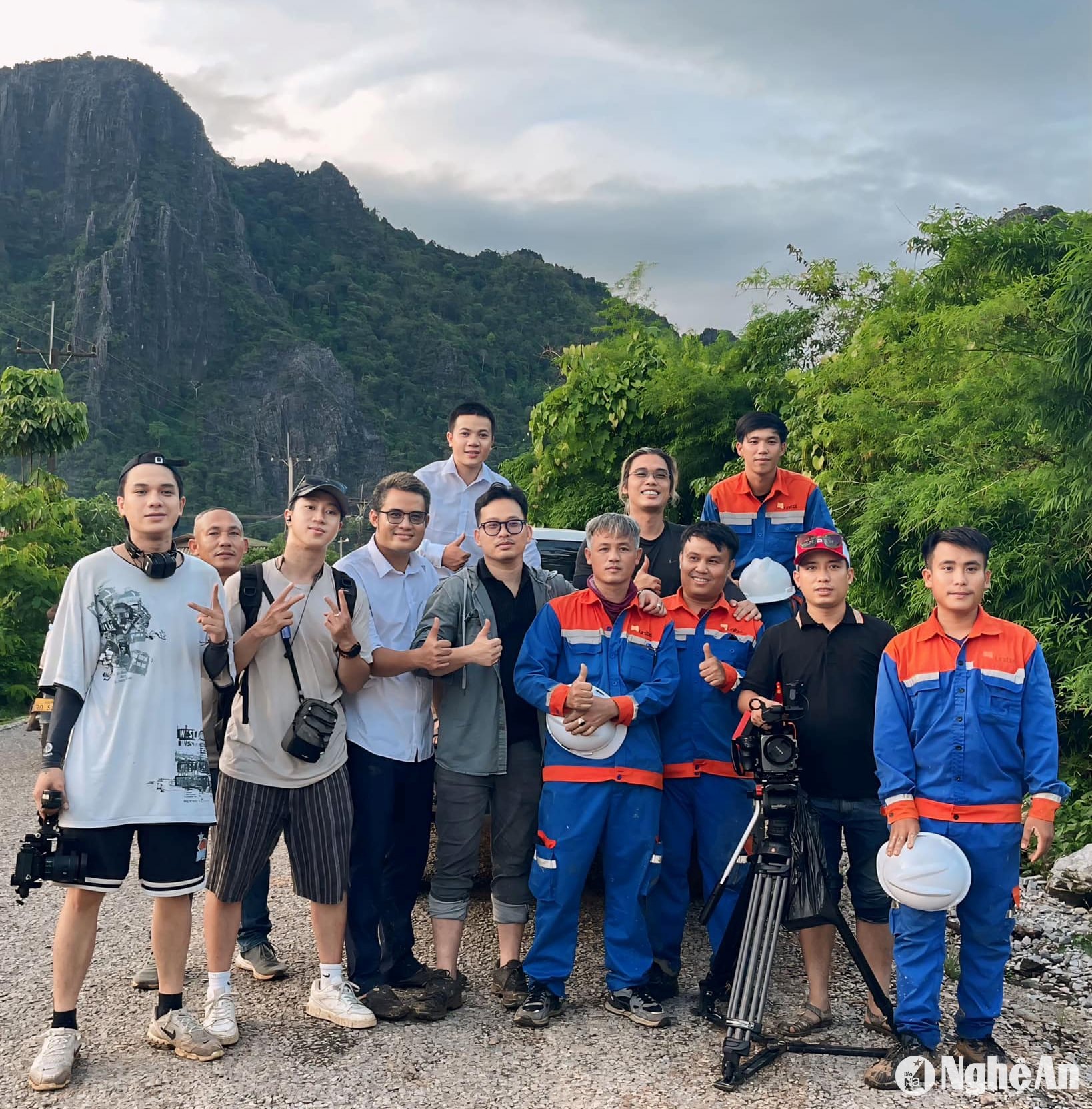
Sharing about his life after graduating from Nghe An, Phonethong said that with a Fair degree in Information Technology, a "hot" major that is lacking human resources in Laos, he was given priority in the recruitment process because it is considered equivalent to a Good degree in his country. In the first two years after graduating, he worked at Lao Viet Bank (LaoVietbank) - a prestigious bank in providing banking and financial solutions for entities with trade and investment relations between Vietnam - Laos, Laos - Vietnam. Here, with a solid knowledge base and fluency in Vietnamese, Phonethong was quite favorable in the work process, especially in connecting Vietnamese and Lao enterprises. Recently, he moved to work at Viettel Telecommunications Company in Laos - a company founded by Vietnamese people, and he continued to promote his strengths.
Although he had just graduated and worked for a short time, with the opportunity to work with many leading businesses in Laos, Phonethong has fulfilled his dream of getting married, having children, buying a house and bringing his parents from Hua Phan province to Vientiane to live. He shared: "Before, my family was in a difficult situation, a poor household. Therefore, when I graduated from grade 12 with high scores and was one of three students selected by the province to study abroad in Vietnam with a scholarship, I saw this as an opportunity to develop my future. The time at university not only gave me knowledge but also helped me understand more about Vietnamese culture, life and people. Those are valuable life experiences that I am still using in my own work today."
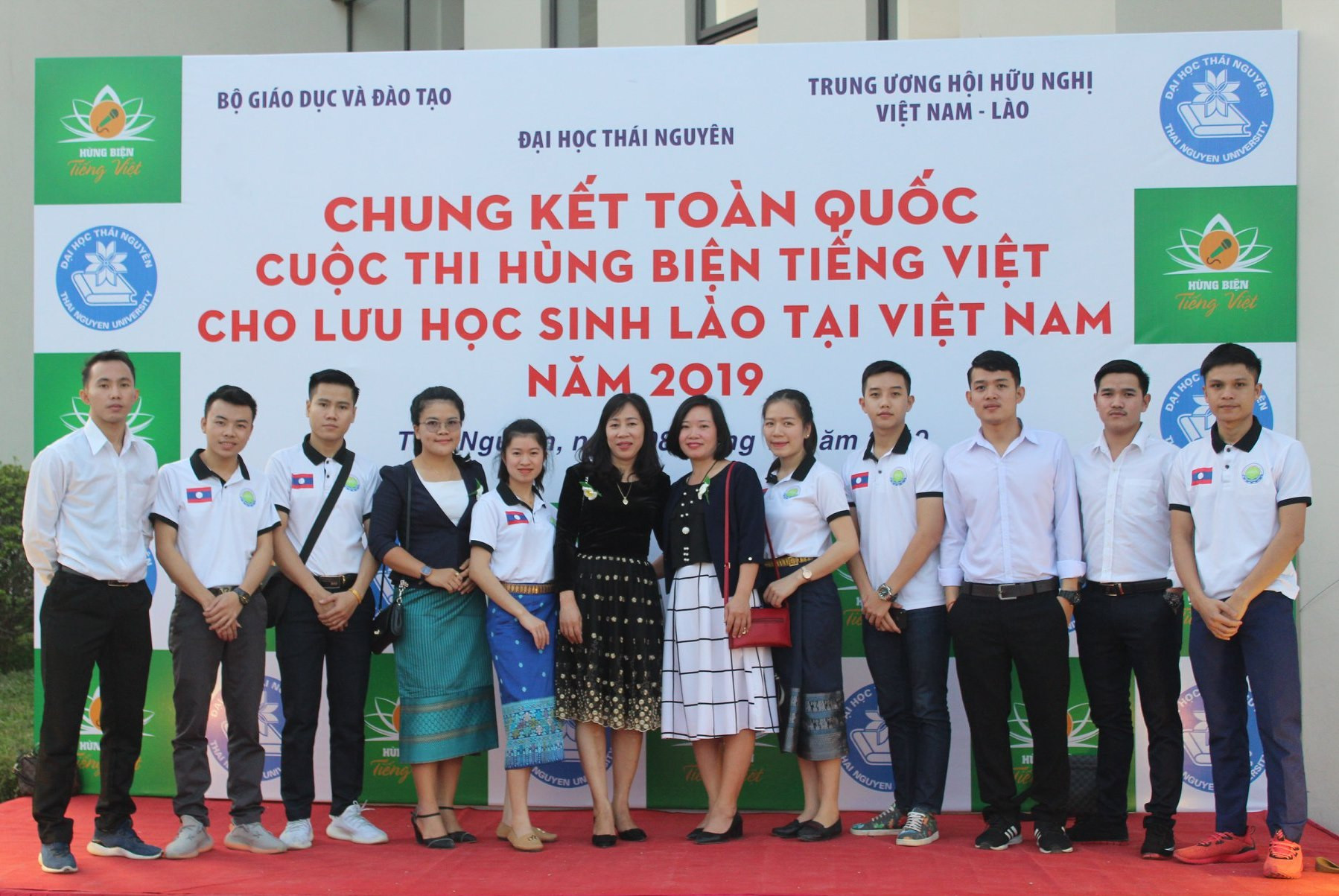
Sivone Ruevaibounthavy and Phonethong Phaomany are two typical examples among many generations of students and researchers trained in Nghe An, who upon returning to their home country have promoted their abilities and contributed to building their homeland. In fact, many Lao students after graduating and returning home have held important positions in state agencies, educational and medical establishments and businesses in Laos, becoming the core force, playing an important role in the socio-economic development of the Land of a Million Elephants.
That team is also an “ambassador” and “bridge” of friendship, contributing to fostering the relationship of solidarity and comprehensive cooperation between Nghe An and the provinces of Laos in particular, and the two Parties and States of Vietnam and Laos in general. Moreover, one of the reasons why Lao students are attached and loyal to Nghe An is because many of them still owe a debt of gratitude to their adoptive parents from Nghe An who gave them a second home during their days of studying and living far away from their homeland.


